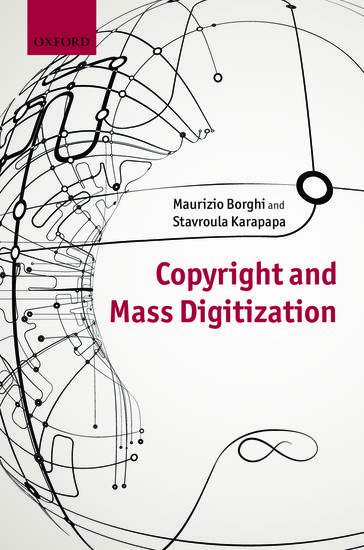By Maurizio Borghi and Stavroula Karapapa
After almost a decade of litigation, on 14 November the Southern District Court of New York has ruled on the class action Authors Guild v Google. Judge Chin, who had rejected in March 2011 the agreement proposing to settle the case, found that the activities carried out in the context of the Google Books project do not infringe copyright. In a nutshell, the ruling affirms that reproducing in-copyright works to make them searchable on the Internet is a fair use under US law.
The legal outcome does not come as a surprise in light of the recent judicial trend in the United States to find fairness in uses that are critical to the functioning of new technologies that would enhance public welfare. Moreover, the project under examination in this case has received wide public support and recognition, and a decision that had outlawed it would have faced serious opposition. Nonetheless, this decision is one of those that mark a watershed in copyright law.

Copyright has been viewed for long time as a right to prevent copying of works. Although this right has always been subject to limitations—including the American doctrine of fair use—no limitation has so far covered an activity that involves systematic and wholesale verbatim reproduction of millions of works. Besides this striking quantitative dimension of copying in Google Books, there are qualitative factors to be taken into account when deciding whether a use is fair or not. The fair use defence has so far covered mainly uses that are either private or transformative in nature. Recently, however, American jurisprudence has expanded the notion of “transformativeness” as embodied in the fair use test to include modification induced by technology in the name of the public interest—for instance, the reduction in size of images to function as thumbnails in search results with a view to enable faster and easier online searches. The Google Books decision has pushed this notion to its boundaries: what is “transformed” is no longer the work as such nor its function, but the use thereof that technology enables. To Justice Chin: “Words in books are being used in a way that they have not been used before. Google Books has created something new in the use of book text”—namely words are now “pointers directing users to a broad selection of books,” or alternatively “data for purposes of substantive research, including data mining and text mining.” There is public interest in having millions of books searchable in this novel way and, since none of these technology-enabled uses supersede or supplant books, they cannot encroach upon the legitimate interests of the rightholders.
What happens now? This ruling is certainly not the final round of the long litigation, and the Authors Guild has already announced that it will appeal. In our view, it is likely that upper courts will expand on the (peculiarly succinct) argument of J. Chin, but will not overturn it. For the time being, the Google Books case instructs that copying for enabling internet search and content mining is a permitted activity under US law. This, in our opinion, will boost the Congress to legislate on orphan works, so to enable Google to display more than just “snippets” of that large amount of works that are still in copyright but cannot clear a license for.
And in Europe? The decision has formally no ground of application outside the United States, although Internet activities are notoriously borderless. As recently reaffirmed by the Advocate General of the CJEU in the Google Spain case (C-131/12), national law applies where a search engine establishes in a Member State an office which orientates its activity towards the inhabitants of that State. This means that authors and publishers of EU Member States can still challenge Google Books under national laws. However, it is unlikely this will happen. A lawsuit with French publishers has been settled in 2012, and no other cases are currently pending on this side of the Atlantic. The Google Books decision, however, may have an indirect impact on European legislations. Since copying for automated text processing (indexing, search, and data mining) is not clearly covered by any of the available exceptions and limitations in Europe, legislators may have to “update” copyright law accordingly. A wise blend of copyright exceptions, fair compensation schemes, and compulsory licenses may serve this purpose perhaps more efficiently than the flexible but unpredictable fair use doctrine. With its announced copyright reform, the United Kingdom is the first European country to move in this direction.
Maurizio Borghi is senior lecturer at Brunel University Law School and director of the Centre for Intellectual Property, Internet and Media. He is a founding member of ISHTIP, the International Society for the History and Theory of Intellectual Property. Stavroula Karapapa is senior lecturer in law at the School of Law, University of Reading and an advocate at the Athens Bar, specialising in Intellectual Property and Internet law. Her research interests focus on the intersection of law and technology with particular emphasis on copyright. They are the authors of Copyright and Mass Digitization.
Subscribe to the OUPblog via email or RSS.
Subscribe to only law articles on the OUPblog via email or RSS.
Image credit: Copyright by Pasha Ignatov, via iStockphoto.



Unusual for the US Justice System to get something so right even after 10 years…Common sense prevails=head line news
[…] Google Books is fair use […]